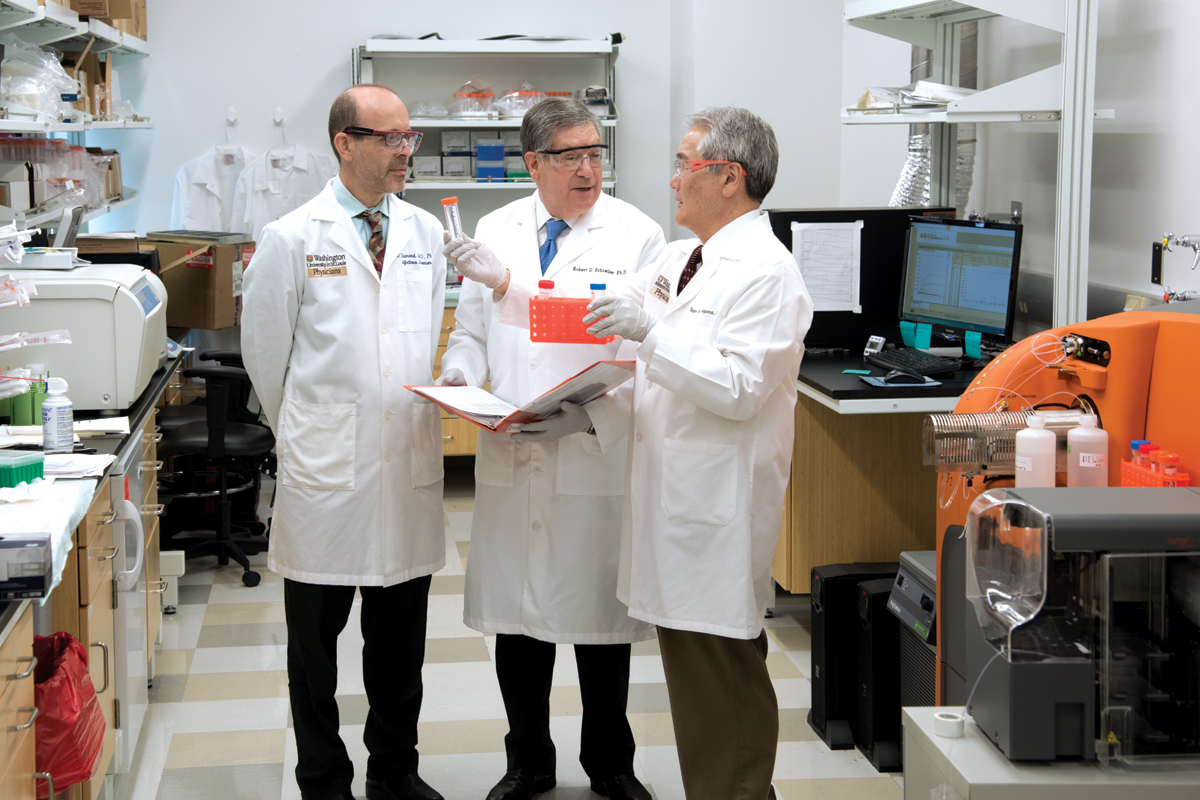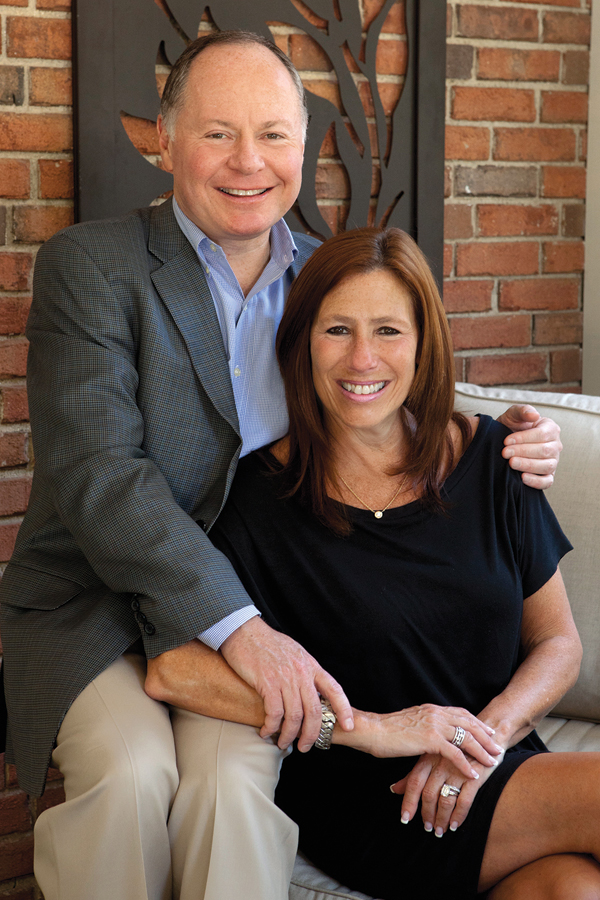
Washington University School of Medicine has received a $10 million gift in support of the Andrew M. and Jane M. Bursky Center for Human Immunology and Immunotherapy Programs. Previously known as the Center for Human Immunology and Immunotherapy Programs (CHiiPs), the center is dedicated to understanding the immune system and its potential for treating cancer, fighting infection and providing novel treatments for autoimmune disorders and immune deficiencies.
The gift from Andrew M. and Jane M. Bursky also supports an endowed distinguished professorship for the center’s director, Robert D. Schreiber, PhD, the inaugural Andrew M. and Jane M. Bursky Distinguished Professor.
“Andy and Jane’s generous gift will be used not only to support the innovative work of Dr. Robert Schreiber, but also to benefit the distinguished team of researchers and physicians who are members of the center,” said Chancellor Mark S. Wrighton. “These scientists are making incredible advances in the field of human immunology.”
Schreiber has led the center since its establishment in 2014 with a focus on nurturing the translation of basic discoveries in the lab into new therapies for patients. Long known for its role in fighting infectious disease, the immune system has more recently been implicated in cancer and for its overactive role in autoimmune conditions such as rheumatoid arthritis, type 1 diabetes and multiple sclerosis.
“With the strength of the immunotherapy programs at the School of Medicine combined with the sequencing power of the McDonnell Genome Institute, this new gift will help jumpstart major research initiatives in understanding and developing new immune-based therapeutics for a broad array of diseases,” Schreiber said.
New therapeutic strategies
Schreiber is well-known for his research in tumor immunology and cell signaling. His work has been instrumental in helping distinguish the conflicting roles that the immune system can play in cancer, whether protective when preventing tumor growth or detrimental when unable to recognize and attack cancer cells. Fifteen years ago, Schreiber and his colleagues introduced the three-phase concept of cancer immunoediting. In the first phase, dubbed elimination, early cancer cells are destroyed by the immune system. Those cells that survive the initial onslaught then enter the second phase, termed equilibrium, characterized by a state of tumor dormancy. The final phase — escape — occurs when the surviving tumor cells, now adept at evading the immune system’s defenses, escape the dormant state and begin to grow. New cancer immune therapies may focus on priming and retraining the immune system to once again attack these evasive cancer cells.
Schreiber and collaborators at Washington University pioneered the use of genomics approaches to identify mutant proteins uniquely expressed in a patient’s tumor that can target the individual’s cancer cells for immune destruction. This approach has formed the basis for major ongoing translational programs at the School of Medicine and elsewhere to test the therapeutic efficacy of personalized vaccines in patients with cancers of the breast, brain, lung, pancreas, prostate, melanoma and certain forms of lymphoma. Beyond cancer research, other leading center investigators are studying important and emerging infectious diseases and viruses, including Zika, Ebola, West Nile and Chikungunya.

The gift will enable an ongoing, coordinated effort to preserve blood and tissue from patients with various diseases that display immune system involvement. With patients’ permission, researchers will have access to blood and tissue samples before, during and after treatment to study a patient’s native immunity and how it might respond to various therapeutic strategies. Such a resource could help doctors understand the reasons a specific immune therapy is effective in some patients but not others.
“Jane and I are both honored and humbled that we have the opportunity to attach our names to the center, which we believe has enormous potential for scientific discovery and for improving the health, directly or indirectly, of the global community,” Andrew Bursky said. “The speed at which the center is translating ground-breaking discovery into new modalities of personalized treatment is incredibly exciting. We are very fortunate to be in a position to make a gift that can have a meaningful impact on the growth and impact of the center.”
Alumni give back
Andrew Bursky is founder and chief executive officer of Atlas Holdings LLC, an industrial holding company based in Connecticut. Bursky also serves as chairman of the company, which employs more than 23,000 people worldwide and operates in a variety of industries, including aluminum, automotive, building materials, construction, distribution, energy, paper and packaging.
The Burskys have deep connections to Washington University, where Andrew earned bachelor’s and master’s degrees in economics and engineering and Jane earned a bachelor’s degree in French and education. Andrew Bursky serves as a university trustee and has received the School of Engineering’s Young Alumni and Alumni Achievement Awards and the School of Arts & Sciences Alumni Achievement Award. Together, they have provided scholarships for students, including establishing the Spirit of Washington University Scholarship.
Published in the Autumn 2016 issue


